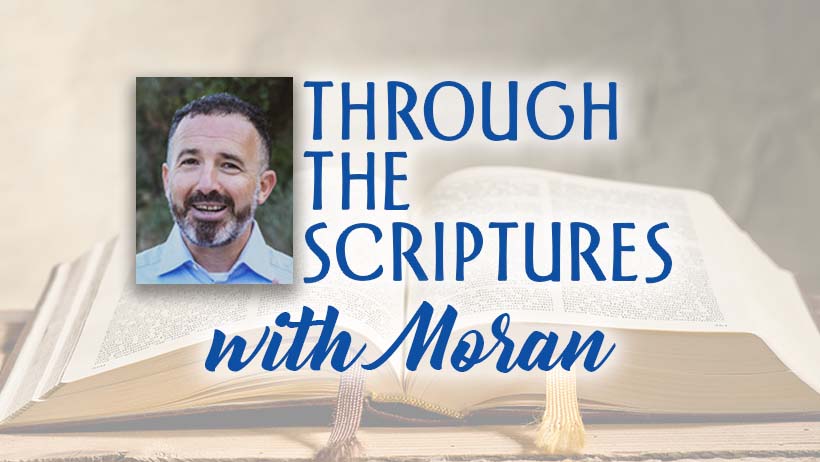
Parashat Shoftim (Judges)
D’varim (Deuteronomy) 16:18 -21:9
Haftarah: Isaiah 51:12-52:12
In this week’s portion, we encounter one of the most striking promises God gave through Moses:
The LORD your God will raise up for you a prophet like me from among you, from your brothers, it is to him you shall listen.
Deuteronomy 18:15
Moses was preparing Israel for a future leader, one who would carry God’s very words. While there was an immediate fulfillment in Israel’s history, Moses’ words also point to something greater: the coming of Messiah. As Peter affirmed in Acts 3:22–23, this prophecy finds its ultimate fulfillment in Yeshua:
Moses said, ‘The Lord God will raise up for you a prophet like me from your brothers. You shall listen to him in whatever he tells you. And it shall be that every soul who does not listen to that prophet shall be destroyed from the people.’
Acts 3:22–23
But the same passage doesn’t only point us forward with hope. It also carries a sober warning:
But the prophet who presumes to speak a word in my name that I have not commanded him to speak … that prophet shall die. And if you say in your heart, ‘How may we know the word that the LORD has not spoken?’ when a prophet speaks in the name of the LORD, if the word does not come to pass … that is a word the LORD has not spoken.
Deuteronomy 18:20–22
This warning is more relevant now than ever. We live in a time when countless voices claim to speak truth about God, about morality, about justice, and especially about Israel. Yet not every voice is trustworthy. Some twist reality, spread confusion, and leave people disoriented.
Yeshua Himself warned:
See to it that no one misleads you. For many will come in My name, saying, ‘I am the Messiah,’ and they will mislead many.
Matthew 24:4–5
And again:
Many false prophets will rise up and mislead many people.
Matthew 24:11
Notice that He said many would come in His name. That is what makes deception so dangerous: it doesn’t always come from the outside, it often comes cloaked in language that seems familiar, even convincing. But in the end, if their words do not bear fruit or prove true, they are not from Him.
Today, we see this vividly in the way Israel is spoken about. Propaganda is preached as fact. Accusations are repeated as if they were truth. Entire movements claim the moral high ground, yet their words crumble when tested against reality.
And perhaps most troubling of all, some voices go so far as to deny the reality of Israel itself. They claim the Israel of today is not the true Israel, and even dare to call themselves the “real” or “spiritual Israel.” But this, too, is deception. God’s promises are clear: He chose Israel, He restored Israel, and He is not finished with Israel. To deny this is to deny the very faithfulness of God to His covenant. And denying God’s faithfulness to His covenant is tantamount to calling Him a liar, which is dangerous ground for anyone to stand on.
This is exactly the reason that it is important to test every message by its fruit, by the truth of Scripture, and by the faithfulness of God revealed in history.
Isaiah brings this into sharp focus with a double call:
“Wake up, wake up! Arise, Jerusalem…” Isaiah 51:17
“Awake, awake, clothe yourself in strength, Zion…” Isaiah 52:1
This is more than physical awakening; it is about clarity of spirit. God is calling His people to rise above confusion, to stop drinking from the cup of lies, and to stand firm in His truth.
Isaiah continues with words of hope:
How beautiful upon the mountains are the feet of him who brings good news, who announces peace, who brings good news of happiness, who announces salvation, who says to Zion, ‘Your God reigns!’
Isaiah 52:7
The difference is clear: false voices bring confusion and despair, while the true voice of God brings peace, redemption, and hope.
The battle for truth is not theoretical; it is happening before our eyes. As Israel is slandered in headlines, as morality is twisted, and as spiritual deception spreads, we are reminded to discern carefully: Does the message align with Scripture? Does it come to pass? Does it draw us nearer to God or lead us away?
Standing with Israel today is not about politics; it’s about trusting the God who keeps His promises.
Our hope is not in movements, ideologies, or human leaders. Our hope is in the One who has already spoken, who has already fulfilled His promises, and who will return. The same God who restored Israel will one day bring complete redemption, when every eye will see that He is faithful to His Word.
Each of us has a choice in these days - to echo the false voices of the world, or to stand with the God of truth and His promises.
He alone is the Shepherd. We are His sheep. We must know His voice.
So let us stand firm, not swayed by the voices of distortion. Let us fix our eyes on the God of Israel, who redeems, restores, and reigns.
Shabbat Shalom,
Moran


One Comment on “Awake to Truth in Days of Confusion”
I found a beautiful promise from God this morning after our news yesterday said “ where is your God.”
Isaiah 25:8
He will swallow up death in victory; and the Lord God will wipe away tears from off all faces; and the rebuke of His people shall He take away from off all the earth: for the Lord God has spoken it.
And it shall be said in that day, this is our God; we have waited on Him, and He will save us: this is the Lord; we have waited on Him, we will be glad and rejoice in His Salvation (Amen Yashua)